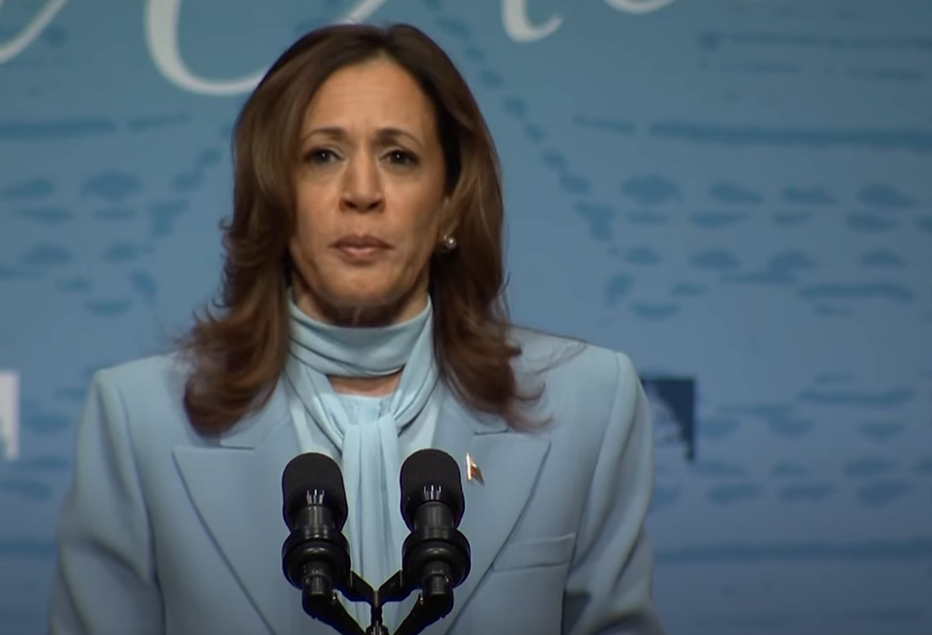Harris Warns of Mass Deportations Under Trump Presidency
Kamala Harris cautions that a renewed Trump presidency may lead to unprecedented mass deportations, affecting not only immigrant communities but also the broader American society. Her remarks have ...
Abraham John
10/31/20243 min read


Kamala Harris Warns of Mass Deportations If Trump Reelected
Vice President Kamala Harris recently voiced serious concerns regarding the potential impact of a second Trump administration on the U.S. immigration system. Speaking at a rally, Harris warned that a renewed Trump presidency could bring about unprecedented mass deportations, with sweeping impacts not only on immigrant communities but also on the broader American society. Her comments have sparked discussions on the feasibility, morality, and broader consequences of such an aggressive immigration stance, should it become reality.
The potential for mass deportations under Trump aligns with his consistent rhetoric on the subject. During his first term, Trump introduced policies designed to reduce immigration sharply, including attempts to end the Deferred Action for Childhood Arrivals (DACA) program and restrict asylum claims. He frequently referred to immigrants as a "threat" to American safety and security. Trump has since stated that if re-elected, he would take even more drastic measures, claiming that the U.S. faces an “invasion” on its southern border. In response, Harris pointed out that Trump’s policies are not only extreme but also impractical and likely to cause widespread fear and disarray within immigrant communities.
The logistical hurdles to a mass deportation plan are substantial. The current immigration enforcement infrastructure—comprising agencies like ICE and the immigration court system—is already under pressure. Harris highlighted that these agencies would struggle to handle a rapid increase in deportations, as detention facilities are frequently at or near capacity and immigration courts face long backlogs. Expanding capacity on the scale needed to support mass deportations would require significant resources, as well as approvals from Congress, where funding could become a highly contentious issue, especially if Democrats hold sway in one or both chambers.
Harris further warned that this approach could lead to a dangerous precedent of federal overreach into state and local law enforcement. Many state and local governments, particularly in Democratic-led areas, are unlikely to cooperate with a policy of mass deportations, setting up potential conflicts between federal and local authorities. A second Trump administration would likely have to rely on cooperation from Republican-led states, while others may resist or even implement “sanctuary” policies to protect residents from federal immigration enforcement. This kind of fragmented approach could lead to unequal impacts across the country, with immigrant communities in conservative states facing the brunt of enforcement actions, while those in more progressive states may receive more protection.
There are also constitutional concerns associated with Trump’s plan. Harris pointed out that any efforts to target large groups of immigrants based on nationality or heritage may be legally challenged, potentially violating equal protection clauses in the Constitution. Trump has suggested invoking the Alien Enemies Act, a wartime law dating back to the 18th century, to justify sweeping deportations. However, legal experts, including those at the Brennan Center for Justice, argue that using this act could be unconstitutional in a non-wartime context and that it could face significant judicial challenges, despite the conservative tilt of the current Supreme Court.
Beyond legality and logistics, Harris raised concerns about the moral and social costs of such a policy. Previous attempts to implement harsher immigration measures led to public backlash, protests, and a strengthening of pro-immigrant sentiment among many Americans. Harris suggested that mass deportations could foster division and disrupt social cohesion, as communities across the country witness the toll that aggressive policies take on families and neighborhoods.
In her statement, Harris ultimately called for a more humane approach to immigration, focusing on reforming policies to support immigrants rather than demonize them. Her comments underscore the profound differences between the current administration’s immigration philosophy and that of a potential second Trump term, highlighting immigration as a key issue that could shape the political landscape in the coming election.
